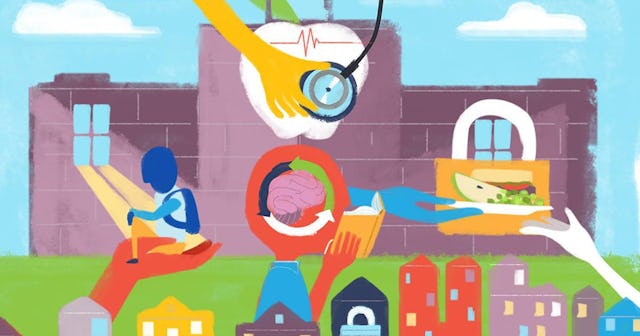Johns Hopkins University Creates Tracker To Help K-12 Schools With Reopening Plans

Equity is at the center of the team’s recommendations for a safe return
As parents and school districts grapple with what to do with kids for the upcoming school year, a team of Johns Hopkins University researchers launched a new website that may help make that decision feel a little less overwhelming.
JHU’s eSchool+ Initiative and School Reopening Policy Tracker was created to assess and guide K-12 school reopening plans across the United States during the pandemic. The team will review real-time analysis of the latest guidance documents from every state. Thus far, 46 State Boards of Education and 13 national policy organizations have issued guidance about reopening schools, but with the messaging from the federal government and some state government officials, the decision as to whether to send our kids back is muddy at best.
“As the United States continues to think about reopening, schools are at the forefront of every conversation,” said Annette Campbell Anderson, deputy director of the JHU Center for Safe and Healthy Schools on its website. “For parents to resume full-time work, schools will need to reopen, but only in a way that makes every effort to protect the safety and health of students, teachers and staff. Schools will also need to find new ways to make up for losses in learning, health, and support systems that occurred as a result of the closure. These discussions are happening right now, and our tracker analyzes how states’ proposed recovery plans support students, teachers, and parents.”
Equity lies at the center of the team’s decision making for guidance for the upcoming school year.
“While schools will be monitoring the COVID-19 ‘learning slide,’ what is missing is an eye on equity for disadvantaged groups,” said Megan Collins, an assistant professor of ophthalmology at the Wilmer Eye Institute and Berman Institute. “Even as education and public health leaders advocate for making classroom-based education a priority for those children most at risk for missing school, there is no clear guidance from school districts about how structural justice problems should be addressed.”
The team will provide a COVID-19 school reopening checklist, school news roundup newsletter, a guidance document titled “The Ethics of K-12 School Reopening: Identifying and Addressing the Values at Stake,” as well as examples of “equity-oriented reopening policies.”
“What children lose by not being in school is enormous; school attendance is a life-defining experience that is critical for educational, social, and emotional development,” says Ruth Faden, founder of the Johns Hopkins Berman Institute of Bioethics. “The biggest ethical challenge for decision makers is determining how to balance the interests of children and the interests of the rest of society.”